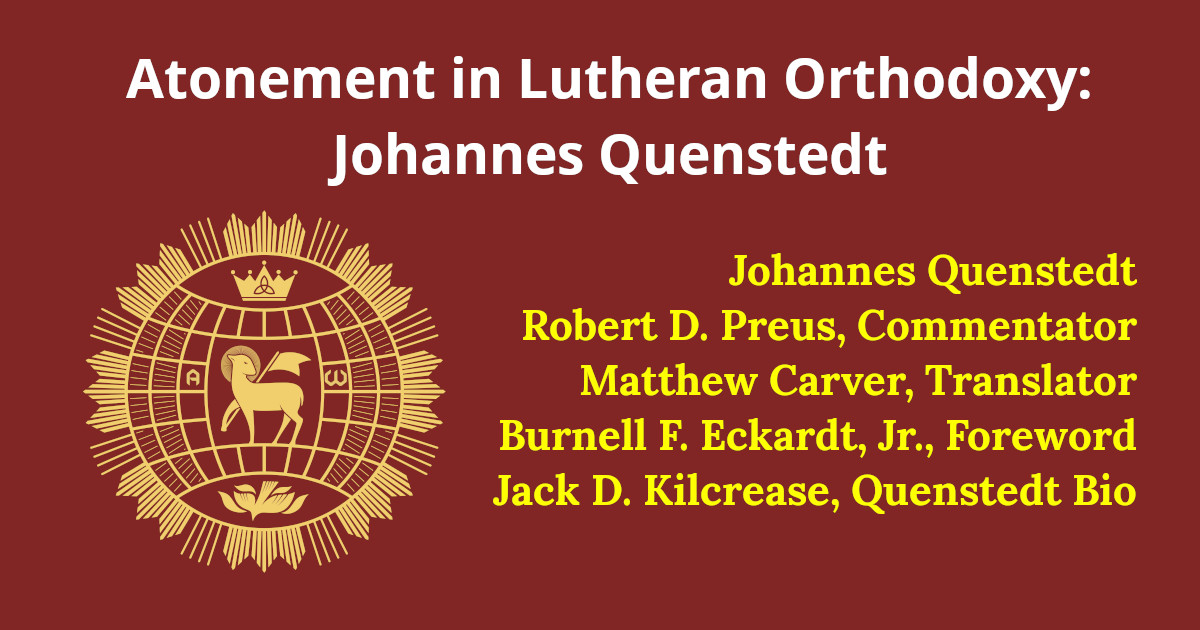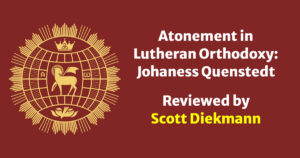Johannes Quenstedt’s De Officio Christi is an antidote to errors about atonement in Lutheran circles. Lutheran Orthodoxy teaches that an indispensable part of atonement is vicarious satisfaction. Adversaries deny vicarious satisfaction. Their errors existed already in Quenstedt’s time. While teaching the orthodox truth, Quenstedt thoroughly refutes the adversaries from Scripture.
Robert D. Preus says, “Quenstedt was the Thomas Aquinas, so to speak, of Lutheran Orthodoxy, the last great representative. … [H]e was fair and meticulous in his work and drew from the best which his precursors had to offer. … Quenstedt’s systematic section on the Atonement actually presents nothing but exegesis of [scriptural] passages pertaining to the doctrine. … Quenstedt’s terminology and understanding of this great doctrine [very closely] approximate what has always been believed and taught concerning the vicarious atonement within conservative Lutheranism.”
Today notable Lutheran voices raise concerns about contemporary teachings on atonement in symposia, congresses, dissertations, journal articles, and books.
Some express bewilderment at how the errors could gain currency. Others say it must be expected. Atonement directly concerns each one’s personal salvation. Its importance cannot be calculated. Occupying this vital place, it naturally becomes a principal target of attack.
Jack D. Kilcrease says, “For Lutheran Christians, modern flights from substitutionary atonement are highly problematic not only because they directly contradict numerous and clear statements of the Bible and the Book of Concord but also because they endanger the chief article of Christianity: justification through faith alone.”
It is time again to amplify Quenstedt’s presentation of the atonement. Besides republishing Preus’ commentary on Quenstedt’s De Officio Christi (Sec. 1. Th. 14 to 44), we have commissioned the first translation of it into English. To produce a translation worthy of Quenstedt and the matters at stake, we engaged translator Matthew Carver. Commensurate with this effort, we engaged Burnell F. Eckardt, Jr, author of Anselm and Luther on the Atonement: Was It Necesary?, to write the Foreword and Jack D. Kilcrease, author of The Doctrine of Atonement: From Luther to Forde and many other writings on atonement, justification, and Scripture to write a biographical introduction to Quenstedt.
The book is available in paperback at this link and for Kindle at this link.




